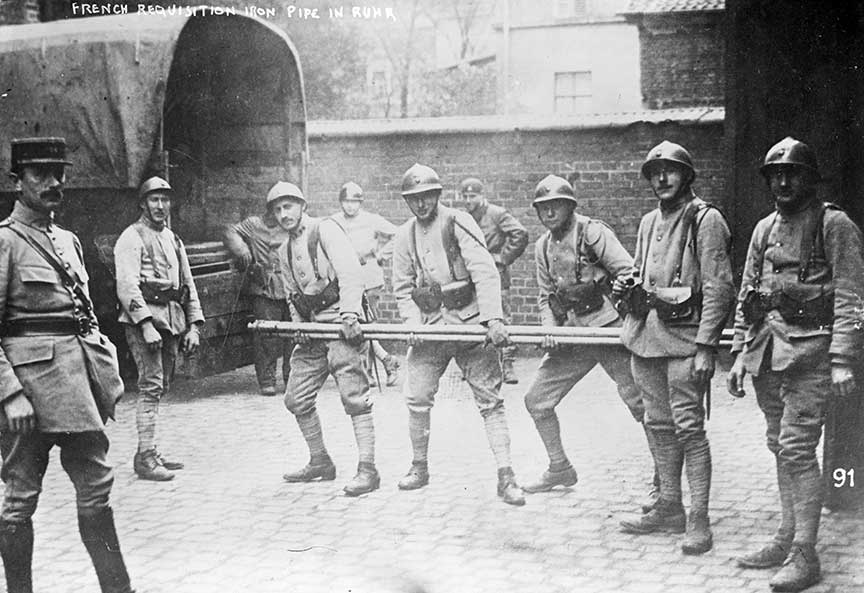France Occupies the Ruhr

French Troops in Ruhr
The French announced, on January 9th, that the German were in default on their coal deliveries. On January 11th, the French occupied the Ruhr district of Germany in order to forcibly obtain coal. The German people and Government pursued a policy of passive resistance.
Under the Versaille Peace Agreement, the Germans were forced to pay reparations for their damage during the war. It was quickly apparent that the Germans could not pay. In December 1919, the economist John Keynes had published a book, The Economic Consequences of Peace. He attacked the reparations aspect of the peace agreement and said it was unworkable.
In 1922 the Allied powers that were owed reparations agreed to defer the payments. However, French Prime Minister Raymond Poincare had not supported the decision. In 1923 when the Germans requested a delay, Poincare responded that France would seize German factories and take the output until the yearly payment was offset. On January 10, 1923, French troops and troops from Belgian entered the Ruhr, Germany's most industrial area, and seeded the factories. The British refused to go along.
The German responded with passive resistance, refusing to produce goods in the factories seized. Germany also refused to make any additional reparation payments as long as the French occupied the Ruhr. In March, when the French army tried to seize trucks at a Krupp factory in Essen, violence ensued in which French troops killed 134 German.
The economic impact of the seizure and subsequent passive resistance on Germany was devastating; the result was rapid inflation and civil unrest.
 >
>